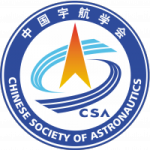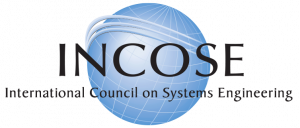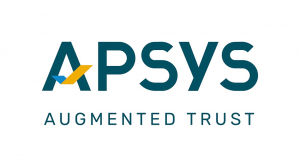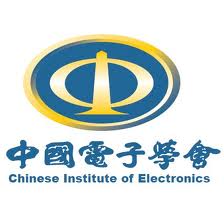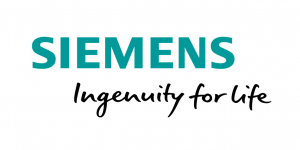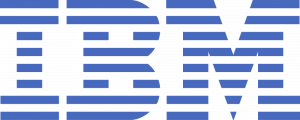Mastering complex engineered systems is a fundamental strategic challenge. Complex Systems Design & Management (CSD&M) conference is a widely open meeting event dedicated to academic researchers, industrial and governmental actors who are interested in complex industrial systems engineering.
The CSD&M conference was created in France and is currently organized each year in Paris since 2010 by the French non-profit organization CESAMES under the guidance & with the support of the « Complex Systems Engineering » industrial chair of Ecole Polytechnique (about 425 participants). It was then extended to the Asia-Pacific area: the Complex Systems Design & Management Asia (CSD&M Asia) conference was therefore organized each two year in Singapore since 2014 (about 450 participants, on the keynote themes: Smart Cities, Smart Nations and Smart Transportation).
Hosted by CSAA and organized by CESAMES, the 4th CSDM Asia edition will be held in Beijing by April 12-13, 2021 during two days. We sincerely thank you for the precious support and interest, and invite you to join again this academical institutional industrial meeting.

Dear Colleagues, Dear Guests,
The 4th edition of the international conference “Complex Systems Design & Management Asia” (CSD&M Asia) will take place on April 12-13, 2021 in Beijing. This event was created by the French Center of Excellence on Systems Architecture, Management, Economy & Strategy (CESAMES). CESAMES believes that mastering complexity can only be achieved with a strong and true cooperation between all key stakeholders (academic, industrial and governmental actors). We look very much forward to see you in April 2021!
General Co-Chair, Institute Professor (Ecole Polytechnique - FR), President of CESAMES
PRESENTATIONS
– Opening of the Conference
- Welcoming by the General Co-Chairs of CSDM Asia: KROB Daniel and ZHANG Xinguo
- Welcoming by the Organizing Committee Chair & the Program Committee Co-Chairs: LI Lefei, YAO Junchen and ZHANG Hongjun
– Keynote Speech
- “Challenges and Opportunities for Complex Systems in a Global post-COVID-19 Society”, DE WECK Olivier, Professor of Aeronautics and Astronautics and Engineering Systems, MIT
- “Syntax, Semantics and Pragmatics, the Model-Based Systems Engineering Trinity”, RAUZY Antoine, Professor of Reliability Systems Engineering, NTNU
- “Technology, Tools and Application of System Modeling and Simulation in MBSE”, ZHOU Fanli 周凡利先生, CEO, Suzhou Tongyuan Software & Control Information Technology Co., Ltd
- “Global Approach to System of Systems“, CHEVALIER Thierry, Head of Digital Design Manufacturing Thrust, Airbus
– Success Stories Sponsors
- Dassault Systèmes: “Simplifying complexity through Model Based Systems Engineering”, WU Daphne
- Siemens: “iMBSE: a proposed framework for architecturing digital twin of complex systems”, Dr. FANG Zhigang and ZHANG QIli, Siemens Digital Industries Software Greater China
- PGM: “Practice of ARCADIA and Capella in Civil RADAR Design”, Mr. XU Renfei
– Contributed Talks
Chair: LI Lefei (Tsinghua)
- Talk I-1: Model-Based Product Line Engineering with Genetic Algorithms for Automated Component Selection (WU Daphne or ONG Robert)
- Talk I-2: Supporting Automotive Cooling and HVAC Systems Design Using a SysML-Modelica Transformation Approach (FORLINGERI Marco and YAN Junjie)
- Talk I-3: Model-Based Airplane Energy Management (ZHAN Chao)
- Talk I-4: A parallel Verification approach for new technology application in complex radar system (WEI Yao)
- Talk IV-1: Towards automated GUI design of display control systems based on SysML and Ontologies (SU Jin)
- Talk IV-2: Integrated Digital MEMS Design For Movement-Control System (DUAN Chenglong)
- Talk IV-3: A Deep Learning and Ontology Based Framework for Textual Requirements Analysis and Conceptual Model Generation (SHEN huanhuan)
- Talk IV-4: Realizing Digital Systems Engineering (GERY Eran and YEE Victor )
Chair: GUO Mengyu (Tsinghua)
- Talk II-1: Non-functional attribute modeling and verification method for integrated modular avionics system (GUO Peng)
- Talk II-2: MBSE Adoption for Cabin Temperature Control System Design of Civil Aircraft (YE Junjie)
- Talk II-3: A Design of Commercial Aircraft Health Management Using N-F-R-P Process (CHANG Shuo)
- Talk II-4: Aircraft-Cable Fault Location Technology Research Based on Time Domain Reflectometry (WANG Danyang)
- Talk V-1: Boost System of Systems Modeling via UPDM: A Case Study from Air Traffic Management (SHEN Huanhuan)
- Talk V-2: A Model-based Requirements Analysis Method for Avionics System Architecture (CHEN Cong & SHEN Jieshi)
- Talk V-3: A Preliminary Research on Zonal Safety Analysis Method for Aircraft Complex Systems by Using Virtual Reality and Augmented Reality (LI Tao & YE Bo)
- Talk V-4: Model-Based System Engineering Adoption for Trade-off Analysis of Civil Helicopter Fuel Supply System Solutions (LIU Weihao)
Chair: CHANG Chuangye (Beihang)
- Talk III-1: IMA Dynamic Reconfiguration Modelling and Reliability Analysis of tasks based on Petri net (YE Zhiao)
- Talk III-2: Closed-Loop Systems Engineering – Supporting Smart System Design Adaption by Integrating MBSE and IoT (DICKOPF Thomas)
- Talk III-3: Ontology for Systems Engineering Technical Processes (CHANG Chuangye)
- Talk III-4: An optimization method for calibrating wireline conveyance tension (JIN Can & PENG Xin)
- Talk VI-1: Quality Infrastructure System in China: An Agent-based Model (NI Shiying)
- Talk VI-2: An Overview of Complex Enterprise Systems Engineering: Evolution and Challenges (WANG Pidong)
- Talk VI-3: Research on the method of association mapping between service architecture design and service component development (ZHAN Zhijuan)
- Talk VI-4: A MBSE-based Development Life Cycle for Reconnaissance, Early-Warning, and Intelligence Equipment System-of-Systems (ZHENG Weiwei)
– Posters Session
– Contributed Talks
Chair: LIU Tong Long (Nortek)
- Talk VII-1: Proposal of assuarance case description method in design for environment (SHIBUYA Kenichi)
- Talk VII-2: An MBSE framework for Civil Aircraft Airborne System Development (HUANG Xing)
- Talk VII-3: Collaborative Engineering method for More Electric Aircraft (MEA) – Tradeoffs and informed decision-making process (IMBERT Jean-Rémy)
Chair: ZHANG John (Huawei)
- Talk VIII-1: A model-based aircraft function analysis method: from operational scenarios to functions (ZHANG Yuchen)
- Talk VIII-2: Advanced helicopter cockpit ergonomic design concepts (MU Xiaowei)
- Talk VIII-3: A quantitative analysis Method of itemized requirement traceability for aircraft development (LIANG Dong)
Chair: LI Lefei (Tsinghua)
- Talk IX-1: Design of test flight mission planning&playback verification system based on STK (CHEN Cong & SHEN Jieshi)
- Talk IX-2: Acknowledged SoS Architecture Design based on Agent-Based Modelling (LI Lefei)
- Talk IX-3: Research on Behavior Modeling and Simulation of Complex UAV Based on SysML State Machine Diagram (LU Yuanjie)
– Success Stories Sponsors
- AVIC CARERI: “Model-based design method and practice for avionics system”, Mr. GAO Lei
- AVIC FACRI: “Deploy system engineering methods in airborne GNC domain”, Mr. WU Fangfang
- IBM: “Integrated Digital Twin over Product Life-cycle”, Mr. GERY Eran
– Keynote Speech
- “MBSE paradigm – Accelerating enterprise digital transformation in aerospace industry”, ZHANG Wenfeng 张文丰女士, Research Professor at the Institute of Aerospace System Engineering
- “Over the Horizon with Systems Engineering”, LUNNEY Kerry, President of INCOSE/Country Engineering Director at THALES
– INCOSE Beijing Summit
Posters
- “A detailed process for aviation systems requirements analysis and definition via model-based approach”, Teng Li
- “A Prediction Method for Gas Turbine Overhaul Makespan with Uncertainties”, LI Tao & CHEN Zhen
- “A Preliminary Research on Performance Prediction Model of Catapult Launched Take-off for A Large Wingspan Unmanned Aerial Vehicle”, XIONG Hongrui
- “Application of Data bus-based Software Architecture in Wind Turbine Control Software”, Ms. CUI Meiyu
- “Application of Model Based System Engineering in Hydraulic Energy System Design”, TONG Xiaolong
- “Architecture Design of High Safety Helicopter Flight Control System with a Direct Control Mode”, TENG Liqiang
- “Design Method of Aviation Architecture Based on Model Base”, ZHAN and XUE
- “Experiences with Applying Scenario-Based Approach to Refine Aircraft Stakeholder Requirements”, ZHU Wenhao
- “Formal Modeling and Correctness Proof of Spatial Partition Algorithm”, ZHU Liping
- “Integrated Configuration management based on System Engineering”, YANG Yi and HUI Wei
- “Model Driven Verification of Airplane Scenarios, Requirements and Functions”, ZHAN Chao and ZHANG Yanbo
- “Optimal Design of Airborne Test System Based on Model Analysis”, LI Xiaolin
- “Practice of ARCADIA and Capella in Civil Radar Design”, XU Renfei and FANG Wenhua
- “Research on distributed Harmony-SE model integration method for complex UAV system”, LU Yuanjie
- “Research on Multi-disciplinary Integrated Design Method of Remote Sensing Satellites”, WU Yongsheng
- “Research on Multi-Physical Modeling and Co-Simulation of Aircraft”, REN Liqiang
- “Research on Practice Methods of Complex Aircraft Requirement Management”, KAN Dong
- “Retrospect and prospect of aircraft comfort design”, LI Peng
- “SoS Architecture Models Transformation for Mission Simulation in Aircraft Top-level Demonstration”, ZANG Jing
- “The Application Research of System Cooperative Design Engineering Based on MSFC Architecture”, XU Hongjie
COMMITTEES
The CSD&M Conference is chaired by 2 Co-Chairs and is also based on the involvment of many Committee Members that you can discover more precisely below.
- The Organizing Committee is in charge of defining the agenda/program of the conference, identifying Keynote Speakers and has to ensure the functioning of the event (sponsoring, communication…)
- The Program Committee consists of about 30 members (mixed of experts from academic and industrial institutions) of high international visibility. Their expertise spectrum covers all the conference topics. This committee is in charge of assessing submitted papers and of selecting the ones that will be presented during the contributed talks session or during the poster workshop.
General Co-Chairs
Prof. Daniel Krob, CESAMES
Dr. ZHANG Xinguo, Tsinghua University
Chair:
YAO Junchen, Secretary General, CSAA
Members:
-
YU Jianfu, Secretary General, Chinese Nuclear Society (CNS)
-
YU Xiaohu, Vice Chairman and Secretary-General, China Ordnance Society (COS)
-
JIN Xiangjun, Deputy Secretary General, Chinese Society of Naval Architects and Marine Engineers (CSNAME)
-
WANG Yiran, VP and Secretary General, Chinese Society of Astronautics (CSA)
-
LIU Mingliang, Vice Secretary General, Chinese Institute of Electronics
-
ZHANG Jian, Vice Secretary General, China Instrument and Control Society (CIS)
-
YE Jinrui (Mrs.), Deputy Secretary General, Chinese Society for Composite Materials
-
CHANG Chuangye, Research Associate Professor, Beihang University
-
FLEURY Gilles, Director & Former director of Centrale Beijing (Beihang Univ.), Paris Campus – Sciences-Po
-
LANDRY Serge, Director INCOSE Asia-Pacific, INCOSE Asia-Pacific
-
LUNNEY Kerry, President elect INCOSE, INCOSE
-
LIU Dong, Managing Director, Accenture Greater China Technology Innovation
-
GONG Minyan, Director, CESAMES China
-
LIU Tong Long, President, Nortek
- LIU Xiao, Professor and Deputy Director of International Cooperation, Shangai Jiao Tong University
-
YU Ce, Director of International Cooperation, CSAA
- David LONG, INCOSE & VITECH, United States of America
- Nicolas MARECHAL-ABRAM, Veolia City Modeling Center, France/Singapore
- Chandran NAIR, National Instruments South East Asia, Singapore
- Chee Seng TAN, Ministry of Defense of Singapore (MINDEF & SAF), Singapore
- Su Chern TAN, JTC Corporation, Singapore
- Philippe VANCAPERNOLLE, Vinci Construction, France/Singapore
- Pablo VIEJO, EDF Lab, France/Singapore
Co-Chairs:
-
Prof. LI Lefei, Professor, Head of the SKL-MCCS, Tsinghua University
-
ZHANG Hongjun, President of the Systems Engineering Research Institute, CSSC
Academic Members:
-
CARDIN Michel-Alexandre, Associate Professor, Imperial College London
-
DE WECK Olivier, Professor of Aeronautics, Astronautics and Engineering Systems, Massachusetts Institute of Technology
-
FENG Yanghe, Associate Professor, National University of Defense Technology
-
GAO Xinghai, Professor, Beihang University
- GUAN Ruo-Xi, Ph.D., Director Assistant of Complex Systems Engineering Research Centre, Tsinghua University
-
HAMMAMI Omar, Professor, Department of Systems Engineering, ENSTA ParisTech
-
JACKSON Peter, Professor and Head of Pillar, Singapore University of Technology and Design (SUTD)
-
KOO John, Director of Cyber-Physics Systems, Hong Kong Applied Science and Technology Research Institute
-
LV Yisheng, Associate Professor, Chinese Academy of Sciences
- RAUZY Antoine, Professor, Norwegian University of Science and Technology
- WANG Chen, Associate Professor, Tsinghua University
- WANG Yingxun, Professor, Beihang University
-
GUO Mengyu, Assistant Professor, Tsinghua University
-
XIE Xiaolei, Associate professor, Tsinghua University
Industrial Members:
- DAURON Alain, Expert Leader Systems Engineering, Renault-Nissan
- FERROGALINI Marco, Vice President – Head of Modelling and Simulations (MBSE), Airbus
-
HOU Shudong, Chief expert, Huawei
-
ONG Robert, Technical Director, No Magic
-
QIE Yongjun, Technical Director, Aviation Industry Corporation of China, Ltd
-
SCHREINEMAKERS Paul, EMEA Sector Director, INCOSE
-
STARK Rainer, Director, Fraunhoffer Institute
-
SUN Zhixiao, Vice director, Aviation Industry Corporation of China, Ltd
-
WEN Yuejie, Senior engineer, China Academy of Space Technology
-
XING Chenguang, Director of Systems Engineering Institute, Aviation Industry Corporation of China, Ltd
-
YEE Victor, Business Development Manager, IBM
-
ZHANG John, Chief Digital Design Scientist, Huawei







